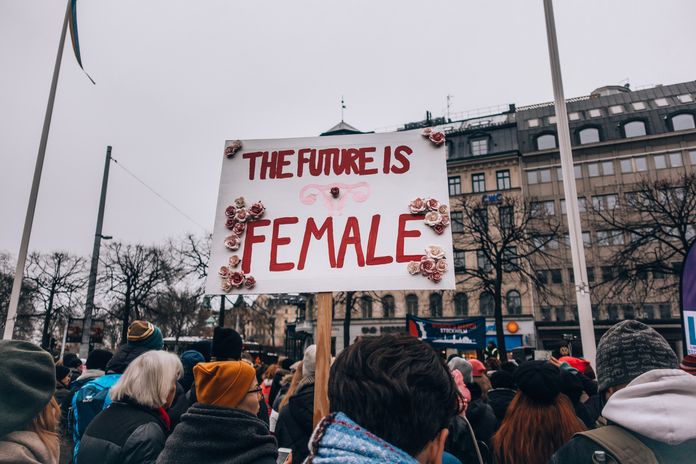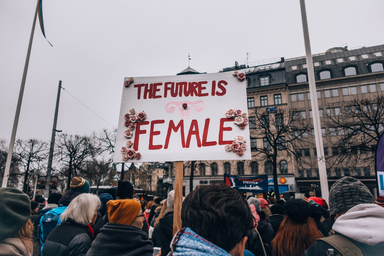For the longest time, women in Puerto Rican politics have had to fight through the trenches to gain enough votes in the polls and enter into political power. In fact, the fight has been so uphill that, despite making up 53% of Puerto Rico’s population, women only occupy 23 of 161 seats in public office on the Island. Organizations such as Proyecto 85 lead the fight for equal representation of women in politics as a means of stimulating societal values such as diversity, community and equality through positive representation.
If there’s good reason to lobby for more women in politics on an island with 3% more women than men, why is it so difficult for women to break through this glass ceiling? The issue has to do precisely with biases, stereotypes, and the social representations people have chosen to believe in and are constantly reinforced.
Women in Puerto Rican politics can never be taken seriously by most people if they aren’t seen as responsible, moral figures of authority that represent patriarchal values. Alexandra Lúgaro, the current candidate for governor running for Movimiento Victoria Ciudadana (MVC), faced severe backlash from religious sectors when she ran as an independent candidate during the 2016 election period after revealing in an interview that she was an atheist. In addition, Lúgaro has been criticized for promoting the cannabis industry in Puerto Rico, for being a single mother who conceived her child in vitro, and for dating another politician, Manuel Natal, who acts as a paternal figure to her daughter.
Approximately 96% of Puerto Ricans identify as Christians, according to Pew Research Center. Many of these also hold conservative views concerning women’s rights to abortion, access to birth control methods, and education with a gender perspective to eradicate gender-based violence, as demonstrated by a 2013 protest that gathered thousands to protest against a then potential law that was to grant protections toward the LGTBQ+ community.
As a consequence of this culturally ingrained belief system, there is a lack of separation between state and religious affairs that taints the electoral process. This lack of clearly defined boundaries became particularly prominent back in 2017 when the House of Representatives passed a bill to celebrate 40 days of prayer and faced a lawsuit for violating constitutional rights concerning the secular nature of state institutions as defined by Puerto Rico’s Constitution.

More often than not, women politicians face the steep hill of inequality as a result of these radically conservative beliefs that are often implemented in both inconstitutional and antithetical ways.
Political figures such as María de Lourdes Santiago, Carmen Yulín Cruz Soto, and Alexandra Lúgaro have been scrutinized in the past over their self-expression, the conviction with which they present their arguments, their lifestyle choices, and even if they comply or not with the stereotypical gender roles of motherhood, femininity, and heteronormativity that is expected of women.
On the other hand, women politicians who behave according to conservative societal norms have been quite successful in Puerto Rico. One example of this was representative María Milagros ‘Tata’ Charbonier, whose lobbying against LGBTQ+ and women’s reproductive rights secured a stable voting base among conservative voters.
Although Tata lost the primaries to run as a legislator for the New Progressive Party (PNP, in Spanish) after a scandalous FBI visit that ended up in her arrest, new frontrunners have already surfaced in the political landscape to take her place as an advocate for conservatives, taking advantage of the ideological narrative.
One such newcomer is Keren Riquelme, a pastor whose academic credentials have been intensely scrutinized by detractors within and outside the PNP. Riquelme managed to win in the most recent primaries as the third most-voted-for senator at large, obtaining 164,741 votes. During the same primaries process, Riquelme won by a landslide a special election to replace the vacant spot left behind by PNP senator Larry Seilhamer.
Riquelme’s claim to notoriety is her fervent defense of a conservative, Christian ideal of a family and her refusal to separate her religion from her political practice. Of course, she also embodies patriarchal values as a soft-spoken, conventionally attractive woman who persuades Puerto Ricans with the use of her emotions rather than logical arguments. For citizens who seek to affirm their ideal of a woman in politics through religious ideals, she is the conservative person’s preferred choice.
Clearly, women who represent themselves as followers of a Christian faith with conservative values are able to rank the social ladder more easily.

As progressive candidates such as María de Lourdes Santiago, running for senator at large for the Puerto Rican Independence Party, and Ana Irma Rivera Lassén, also running for the same position but for MVC, attempt to push public policy for the protection of marginalized communities in Puerto Rico, many other female politicians attempt to set back Puerto Rico’s legislative progress with women, gender violence, access to abortion, and LGBTQ+ rights.
Particularly, women such as Joanne Rodríguez Veve, candidate for senator at large, have strictly defended the tone deaf and ignorant stances of an emerging political party called Proyecto Dignidad, which believes that a critical perspective of gender should not be included in school curriculums as a way of addressing gender-based violence. Her online support has increased in recent weeks following the candidate for governor César Vázquez’ spout in the most recent political debate, in which he dismissed the alarming rates of femicides in Puerto Rico.
In a similar vein, women who have made their religious beliefs a part of their political campaign have rallied support at the expense of the social acceptance of minorities who are ostracized by extreme conservative beliefs. However, the women who identify as atheists, sympathize with the possibility of a new political status for Puerto Rico beyond statehood, or present themselves in non-feminine ways will continue to face backlash from a society with a deeply sexist worldview.
To the women who are unapologetically present and still get scrutinized over any small detail irrelevant to their capacity to deliver excellent and transparent public service: you deserve better.


